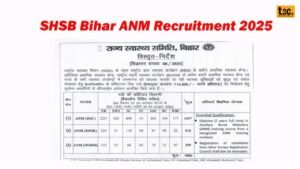Balancing Reputation and Free Speech: A Constitutional Perspective in India

Let’s understand right to reputation by balancing Reputation and Free Speech, a Constitutional Perspective in India. Furthermore, in India, the right to reputation is recognized as a fundamental right under Article 21 of the Constitution, which guarantees the right to life and personal liberty. We consider the right to reputation an essential component of the right to life because a person’s dignity and honor are integral to their existence. The Constitution balances this right with the fundamental right to freedom of speech and expression under Article 19(1)(a) and imposes reasonable restrictions on freedom of expression to protect a person’s reputation.
Here’s how the right to reputation functions in India:
1. Constitutional Perspective:
– Article 21: The Supreme Court of India has interpreted the right to life to include the right to live with dignity, which inherently protects a person’s reputation.
– In cases like Subramanian Swamy v. Union of India (2016), the Supreme Court upheld the constitutionality of criminal defamation under Section 354(1) and Section 354(2) of the BNS. Thus, the court stated that reputation is part of the fundamental right to life under Article 21.
2. Criminal Defamation (Bharatiya Nyaya Sanhita, 2023):
– Section 354(1) of the BNS defines defamation as any act of making or publishing an imputation concerning a person, intending to harm or knowing it would harm their reputation.
– Section 354(2) prescribes punishment for defamation, which includes imprisonment for up to two years, or a fine, or both.
3. Civil Defamation:
– Apart from criminal prosecution, a person can also file a civil defamation lawsuit seeking damages for harm to their reputation. The Law of Torts governs this (but this is not codified), requiring the plaintiff to prove that the defamatory statement harmed their reputation.
4. Balance with Freedom of Speech:
– The right to freedom of speech under Article 19(1)(a) is subject to reasonable restrictions under Article 19(2), which includes defamation. This means that individuals cannot use the right to freedom of expression to unjustly harm another person’s reputation.
– Courts have consistently held that while freedom of speech is crucial in a democracy. Thus, it must be balanced with the right to protect one’s reputation.
5. Judicial Interpretations:
– The judiciary emphasizes that individuals must not tarnish a person’s reputation without a justifiable reason. Also, it has upheld that defamation laws must be interpreted to protect a person’s dignity.
– At the same time, the courts ensure that individuals do not misuse defamation laws to stifle legitimate criticism or curtail freedom of speech.
Key Judicial Cases:
– Subramanian Swamy v. Union of India (2016): The Supreme Court upheld criminal defamation laws, stating that the right to reputation is an integral part of the right to life under Article 21.
– State of Bihar v. Lal Krishna Advani (2003): The Supreme Court reiterated the importance of safeguarding individual reputation.
– R. Rajagopal v. State of Tamil Nadu (1994): The court distinguished between public figures and private individuals, noting that public figures have to tolerate more criticism.
In conclusion, while India protects both freedom of speech and reputation. Thus, it strives to balance these rights to ensure that neither is unduly compromised.
Thus, right to reputation needs balancing with Free Speech and understand a Constitutional Perspective in India.
Want to make informed career choices? Our expert counselors are ready to assist. Schedule your session today on Mytagapp.com!
Discover the secrets to maximizing your college experience with student chapters. Our article has everything you need to know and join our student community on WhatsApp!









